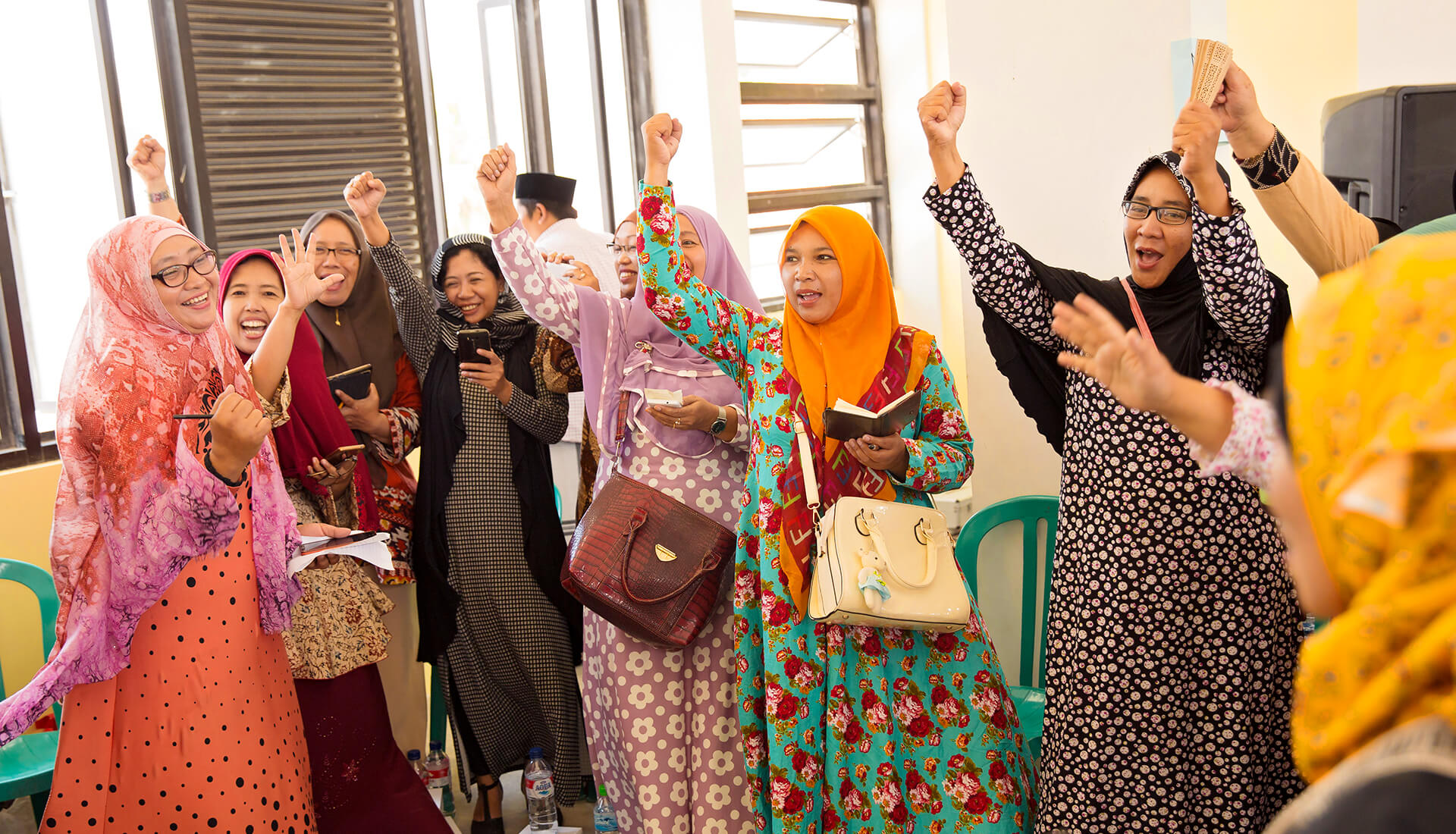Part 2
The Human Path
How a vibrant civil society addresses the conditions conducive to terrorism and violence.
Scroll to ExploreJump to Recommendations
The misuse of counter-terrorism measures to repress civil society doesn’t solve complex problems like terrorism and violence.
Civil society and civic space are the foundation for ensuring peace, preventing violence, and strengthening our future.
Civil society is the path forward.


Human Rights Defender
Policymakers and programme specialists must avoid civil society’s inclusion as a “tick-box” exercise, ignoring their diversity of opinions and lived experiences. Working in partnership with civil society through meaningful participation takes time and trust.
It takes a genuine commitment to the inclusion of civil society not just because it makes for more effective counter-terrorism, but because it’s the right thing to do.
Learn more about Meaningful Participation
The Global Study documents the restrictions on civic space across every region and makes cross-cutting recommendations, as found below, as well as technical recommendations in each Part.
Recommendation 1
Reorient militarized approaches to counter-terrorism in response to the deep evidence on strategies and investments that lead to successful prevention of violence advancing peacemaking and peacebuilding alternatives.
Recommendation 2
Diligently pursue deliberate and intentional pruning of national, regional, and international counter-terrorism architectures that have bulged over the last twenty years to bring balance and human rights compliance in this arena.
Recommendation 3
Use the decades of documentation and implement recommendations prepared by the Human Rights Treaty Bodies and Special Procedures Mechanisms as a tool to achieve increased human rights and rule of law compliant responses to terrorism and violence.
Recommendation 1
Prioritize investments in rule of law-based approaches, throughout all UN entities, to counter-terrorism and P/CVE focused on addressing the conditions conducive to terrorism and violence rather than simple technocratically labeled counter-terrorism and P/CVE programming. This includes agencies, funds, and programs that specialize in legal and security sector reform, good governance, gender equality and women’s peacebuilding, and broader community-based violence prevention focusing on those core areas of work rather than adapting programming to demands of counter-terrorism and P/CVE narratives.
Recommendation 2
Establish consistent, UN-wide, public, principled, and official stances on the impact of counter-terrorism and P/CVE measures on civil society and civic space aimed at advancing the human rights and rule of law compliance of countering terrorism. This includes addressing the lack of visibility among senior UN officials as outspoken and clear on the documented impacts of counter-terrorism and P/CVE on civil society and civic space.
Recommendation 3
Collect global disaggregated data in line with principles of do-no-harm, informed consent, and human rights due diligence, to identify discriminatory and group-based patterns of misuse of counter-terrorism and P/CVE measures in a sustained way, utilizing the findings of this Study as a baseline.
Recommendation 1
Enhance procedures for overseeing the impact of counter-terrorism measures on civil society. Strengthen the role of regional human rights mechanisms in building connectivity between positive commitments to addressing the conditions conducive to terrorism and preventing violence in line with international and regional human rights law commitments.
Recommendation 2
Engage with Human Rights Treaty Bodies and Special Procedures Mechanisms to improve working relationships and entry points for civil society in regional systems mirroring the UN recommendations. Dedicate regional space for civil society in regional processes on counter-terrorism and P/CVE in line with human rights due diligence safeguards.
Recommendation 3
Standardize practices to prevent, address, and respond to reprisals for civil society’s engagement in regional processes at the national level among members.
Recommendation 1
Urgently mainstream and implement the UN Guiding Principles on Business and Human Rights amidst the increasing outsourcing to and implication of the private sector in counter-terrorism and P/CVE related human rights violations.
Recommendation 2
Establish a moratorium on the use of remote biometric recognition technologies in public spaces, or at least until the authorities responsible can demonstrate compliance with privacy and data protection standards and the absence of significant accuracy issues and discriminatory impacts and until all the recommendations set out in paragraph 53 (j) of the report of the Special Rapporteur on the promotion and protection of the right to freedom of opinion and expression are implemented.
Recommendation 3
Banks and intermediary financial institutions must adopt a firmly risk-based approach to counter-terrorism financing through the adoption of human rights and due diligence safeguards and make readily available internal compliance policies.
Recommendation 1
Continue to engage in cooperative relationship building locally, nationally, regionally, and internationally drawing on and building out from existing relationships including those developed as a result of this Global Study.
Recommendation 2
Continue to engage proactively with the Human Rights Treaty Body Mechanisms and Special Procedures Mechanisms in elevating their experience of human rights violations for themselves and for those they represent. Civil society has created the evidence basis to date and will continue to be imperative to continued documentation and jurisprudential development and augmentation.
Recommendation 3
Protect itself against spyware as far as possible by utilizing privacy safeguards and building technical capacity to resist misuse of counter-terrorism technology. Civil society must invest in digital security, deepen its own reflective self-governance, and ensure knowledge transfer within and across national, regional, and global intersections.